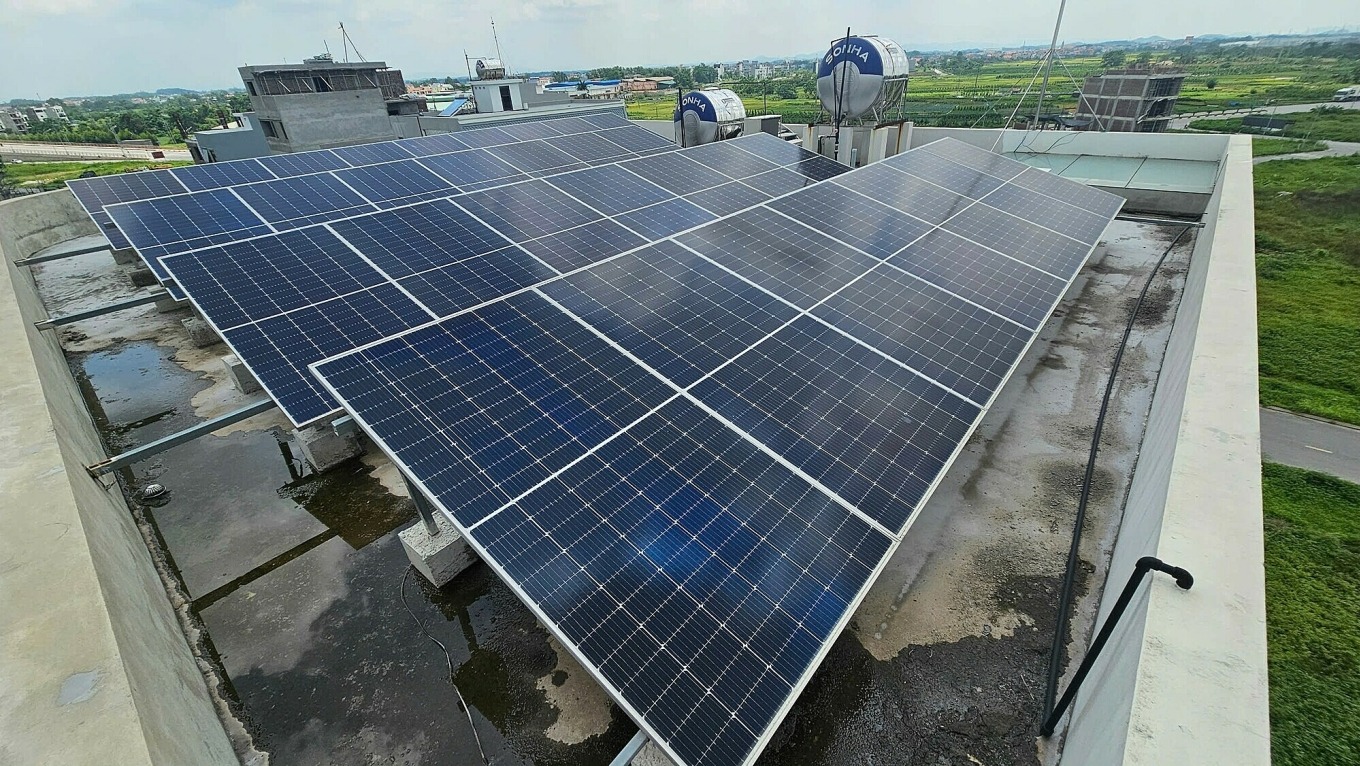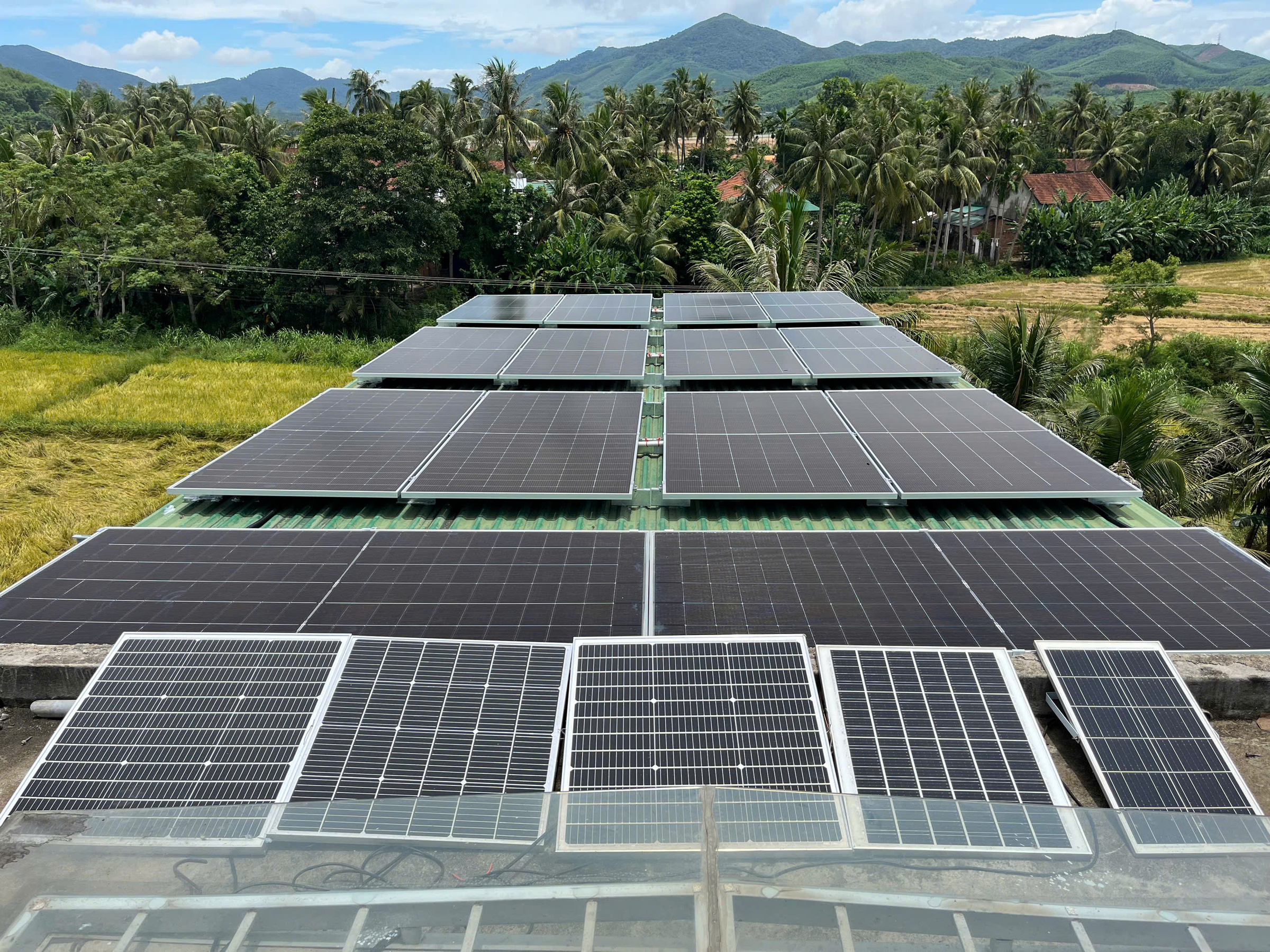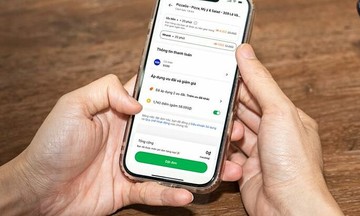"The regulations weren't in place initially. Now, after we've already installed our systems, they're proposing penalties. The uncertainty about the penalties is unsettling," said 50-year-old An from Hai Phong.
In 2023, An's family invested 115 million VND in a rooftop solar system with 12 panels and a 6 kWh battery. Their summer electricity bills dropped from 6 million VND per month to 80,000 VND. In winter, they only spend about 20,000-30,000 VND. An estimates the system will pay for itself in three to four years. "During Typhoon Yagi in 2024, when the entire city lost power, our house still had lights and all appliances functioned normally," she said.
An's joy over the low electricity costs was short-lived. She became worried after hearing about EVN's (Vietnam Electricity) proposed penalties for unregistered systems. Since her family installed their system in early 2023, before this proposal, she's concerned about back charges.
An's concerns are shared by six of her friends in Hai Phong who also have rooftop solar. Besides the fear of penalties, they are also apprehensive about the potentially complex registration process.
Thuy Mai, a 40-year-old business owner in Gia Lai, also saw her electricity bill decrease from 3 million VND to 200,000 VND monthly after installing a rooftop solar system in 2023. Believing it wouldn't affect the national grid, she didn't report her installation. Now, she worries about the potential complications and penalties involved in the legalization process.
 |
A rooftop solar system on a house in northern Vietnam, 6/2025. Photo: Phuong Anh |
A rooftop solar system on a house in northern Vietnam, 6/2025. Photo: Phuong Anh
The question of whether permission is required for rooftop solar installations has sparked lively debate online.
Demand for rooftop solar in Vietnam is steadily increasing. The country now has over 103,000 systems with a total capacity exceeding 9,500 MW. According to the adjusted Power Development Plan VIII, Vietnam aims for 50% of public buildings and 50% of households to use self-generated rooftop solar power by 2030. EVN explained that the registration requirement helps authorities monitor the scale of these installations and ensure the safe operation of the national grid.
Globally, registration is mandatory for household solar installations. In the US, households must obtain two permits. The first is from the city or county, ensuring compliance with the National Electrical Code (NEC), fire codes, and structural safety standards. The second involves a connection agreement with the local utility company, outlining safety standards, requiring a two-way meter, and an anti-islanding device to prevent feeding power back into the grid during outages.
In Germany, all solar systems, regardless of size, must be registered with the Federal Network Agency before operation to ensure grid stability. Many EU countries have simplified procedures, but registration for management purposes remains essential.
Lawyer Diep Nang Binh, head of Tinh Thong Luat Law Firm, believes the registration requirement is not meant to "burden" citizens. He views it as a necessary technical requirement to ensure the safety of both the national grid and the users themselves.
"Each rooftop solar system, however small, is a power source. When tens of thousands of unregistered sources operate simultaneously, they can cause issues like local overloads, affecting voltage quality," Binh explained. Registration provides the power sector with data to manage the grid safely and efficiently.
According to Binh, those with pre-existing installations simply need to notify the relevant authorities. He suggests a simple, transparent, and fully online registration process. "We need to avoid a permit-based system. Citizens should only need to notify. Penalties should only apply to actions that pose real risks to the power system or public safety," Binh stated.
The requirement to register or notify authorities about rooftop solar installations was mentioned in Decree 58/2025 on renewable energy development and the 2024 Decree on rooftop solar development, but these weren't widely publicized, leaving many unaware. Neither decree specified penalties for non-compliance.
According to EVN's guidelines, individuals and businesses with rooftop solar systems under 100 kW only need to notify the Department of Industry and Trade and their local power company. After receiving confirmation, households can manage their own power supply, adhering to building codes, fire safety regulations, and environmental protection standards.
Nguyen Quoc Dung, head of EVN's Business Division, stated that after Decree 58 was issued, EVN developed tools to facilitate easy notification. Citizens can report through the website, mobile app, or other online methods.
"The notification system is now operating smoothly, maximizing convenience for customers," Dung affirmed.
 |
A completed rooftop solar system on a house in Gia Lai, 2025. Photo: Kien Khang Solar Company in Gia Lai |
A completed rooftop solar system on a house in Gia Lai, 2025. Photo: Kien Khang Solar Company in Gia Lai
This is also what Hai An hopes for. She's willing to register, but needs clear guidelines and a streamlined process. "The biggest hurdle is how to handle existing systems. Policies should prioritize convenience for citizens, not complicated, burdensome regulations," she said.
The solar market is booming. Kien Khang Solar Company in Gia Lai reported a 50-70% increase in customers during the first 9 months of the year. Director Nguyen Viet Tan attributes this trend to government incentives aimed at reducing strain on the national grid.
To minimize customer inconvenience, Tan's company will assist with notification procedures, including submitting required information, basic drawings, and building permits to the Department of Industry and Trade.
Preparing for her solar installation, 35-year-old Thanh Hoa from Nghe An requested assistance with registration from her contractor. She believes regulations are necessary for effective management.
"However, clear guidelines and a cooperative, non-punitive approach from authorities are key to alleviating these concerns," Hoa said.
Quynh Nguyen












